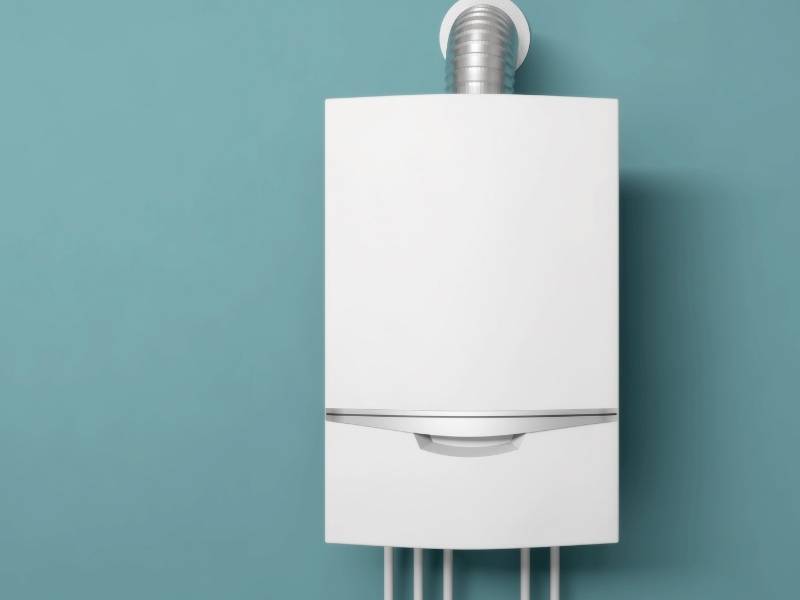Many of you are contemplating a tankless water heater for your home. Here’s what you need to know to choose the right heater for your hot water needs.
The way most households are heating water until now is wasteful. Storage tanks fill up with 40 to 50 gallons of water and keeps the water hot by supplying energy to it 24/7. That’s a lot of unnecessarily wasted energy.
Suppose also that someone in your house takes a long hot shower and uses all the hot water. That tank of water might take a long time to reheat. You also have to worry about the leaks in your tank or the presence of sediments that rob your energy.
If you’re thinking lately about switching to a tankless water heater, we invite you to continue reading for the information you need to know.
Reasons to Order Your Tankless Water Heater Installation

Save on Fuel Costs
An electric tankless water heater saves up to 50 percent of your total fuel costs because hot water only generates when someone needs it. Also, there is not risk a catastrophic leak as this unit has no tank.
The tankless water heaters first made their appearance in the U.S in the 90s and now boast features such as wireless connectivity a smartphone notification when the device needs servicing. It also helps to have recirculating pumps that are built-in so the water warms instantly.
How Much Does It Cost?
If you are going for the smaller units that are fired by gas then prices start from $170. Also, if you want to go with the high-output heater, which provides water for two showers at the same time, the price is around $2000.
On average a good quality tankless water heater might cost you around $1000. You will incur some costs during the first time installation of the water heater. Check your local listings to know the price of the installation.
How to Install The Water Heater
If you want to install an electric unit then you must upgrade the circuit breaker panel and wiring. However, if you choose the propane or gas units then you must make connections for the gas and vent while ensuring that the connection is water-leak free.
These is highly technical work and so hire a professional for this project. Doing so gives you the peace of mind you need to ensure the safety and security of your home and family.
The Regular Maintenance Tasks
The heater must get serviced in regular intervals that includes changing the air and water filters, cleaning the filters, and keeping the burner in good condition.
The heat exchanger might also get clogs in areas that have hard water. So you use a vinegar flush to clean the mineral buildup approximately every 500 hours. This task takes about 15 to 20 minutes and you may easily perform this task.
How Long Do They Last?
If you get a water heater that’s gas-operated, expect it to last for up to 20 years or more. This is almost three times longer than a tank-type water heater.
If you purchase an electric tankless heater then expect it to last anywhere between one to seven years.
Who Sells Tankless Water Heaters?
You can easily buy a tankless water heater at a big-box store, online retailers, or plumbing supply stores.
If you want a home delivery then you can also order one through your plumber that includes delivery and installation.
What are the Benefits?
Some of the fantastic benefits you may expect from a tankless water heater include the following:
⎆ They are Smaller
The newer tank-type water heaters are now manufactured at a bigger size as the federal regulations require them to have thicker insulation to minimize the standby heat.
This is the reason newer tank-type heaters do not fit easily into smaller places. Therefore, if you have a small space then you go with the tankless gas heaters as they are small and can be hung on the wall.
⎆ They are Safer
If a tank type heater gets a leak then gallons of water might spill. The tank-type heater also harbors a bacteria called Legionella, and there’s a risk of the heater tipping over if there is an earthquake.
These are not issues with the more compact tankless water heater. Also, the risk of carbon monoxide leaking into the house caused by backdrafting is eliminated due to the seals for the exhaust and air supply vents.
⎆ They are Easily Winterized
Many vacation homeowners clean up and lock the house for winter. For them, it is a serious undertaking to drain the tank of the water heater.
Conversely, with a compressor, like the ones in the tankless water heater, the water drains in a few seconds. Then, you simply unplug it!
⎆ You Get Hot Water Instantly
Tankless water heaters are quick when it comes to heating your water, doing it in about 15 seconds. You only wait for the hot water to reach the faucet or shower head.
If the distance between your fixture and the heater is more than 50 feet then it is also wise to get a unit that has a recirculation pump built into it. This pump reduces the waiting time and saves water.
The pump works by pushing back cold water into the pipes through the heater. Moreover, you control it by a motion sensor, smart speaker, smartphone, or a timer. In about a minute the pump shuts off and you get hot water in just seconds by opening the tap.
Tankless Water Heater Summary
If you don’t have a propane tank or a gas line at home, an electric tankless water heater might be your best choice. Hot water is available in demand as these units use thick copper rods to heat the water.
They are also much smaller and quieter than propane or gas tankless heater. Additionally, you can installs the electric tankless heaters just about anywhere as they don’t need vents. So, continue your research about what type of heater to get for your home and enjoy the relaxation of hot water baths this winter.
If you have any suggestions or question, please enter them in the comments below. Also below are links to take you to more fantastic articles about ALL things DESIGN.
Images Courtesy of Canva.
Other Posts You Might Enjoy:
How to Choose the Best Hot Water Systems
3 Steps to Improve Home Water Quality





